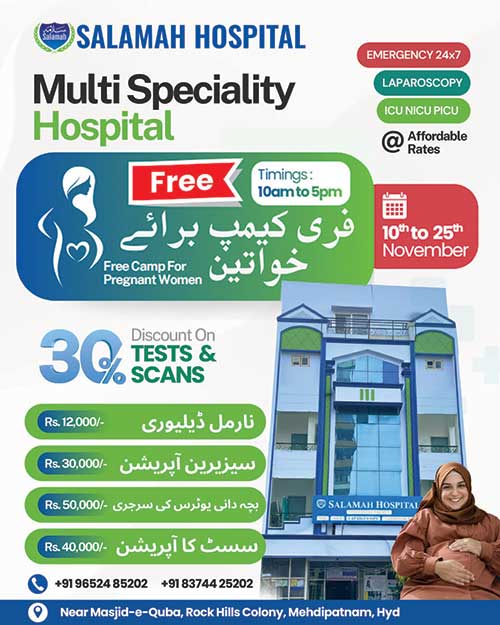Kidney-pancreas transplant recipient delivers baby at PGI Hospital
Ashish Sharma, Head, Department of Renal transplant Surgery with Postgraduate Institute of Medical Education and Research (PGIMER)

Chandigarh: Accomplishing one more milestone, the PGIMER located here has written another success story in transplant surgery as a 32-year-old simultaneous kidney-pancreas transplant recipient from Uttarakhand delivered a baby girl, four years after undergoing the transplant.
Ashish Sharma, Head, Department of Renal transplant Surgery with Postgraduate Institute of Medical Education and Research (PGIMER) said: “Less than 150 pancreas transplants have been carried out in India so far. Out of these, the PGIMER alone has contributed 38 of these.
“This is the first childbirth happening after pancreas transplant at our institute and possibly the first in India. While globally pancreas transplant remains fairly common with nearly 35,000 pancreas transplant having been performed in the US. It has just started in our country.”
Expressing her happiness at the successful delivery in this high-risk case, Seema Chopra, Obstetrics on-charge at the PGIMER, said: “There were different opinions as she was considered to be a high-risk patient given her past history of diabetes, hypertension and kidney failure.
“Ultimately, after consultation with obstetrics team, she decided to proceed ahead. Fortunately, her glucose, blood pressure and kidney function remained within normal limits throughout the pregnancy. However, in view of high-risk status it was decided to perform a Caesarean section at nine months and she delivered a female baby of weight 2.5 kg with uneventful recovery.”
The mother to the newly born baby girl was diagnosed to be suffering from type one diabetes since the age of 13, i.e. from 2005 when she developed loss of consciousness and had been under treatment of the Department of Endocrinology here since then.
Detailing about the case management, Sanjay Bhadada, Head, Department of Endocrinology, said: “The mother’s diabetes was labile and required minus 70 units of insulin every day along with strict monitoring of blood glucose.
“Despite this, it was difficult to control and in one instance she required hospitalisation with ventilator support. In 2016, she developed swelling of entire body when it was diagnosed that she had developed kidney failure. She was initiated on dialysis twice a week in 2018.”
She was lucky to undergo simultaneous pancreas and kidney transplant when one heart donor family donated organs of their deceased one after his brain death here in the PGIMER.
After this transplant, both diabetes and renal failure got cured and she had been leading a normal life. Two years later she got married and now she is a mother to a baby girl.

